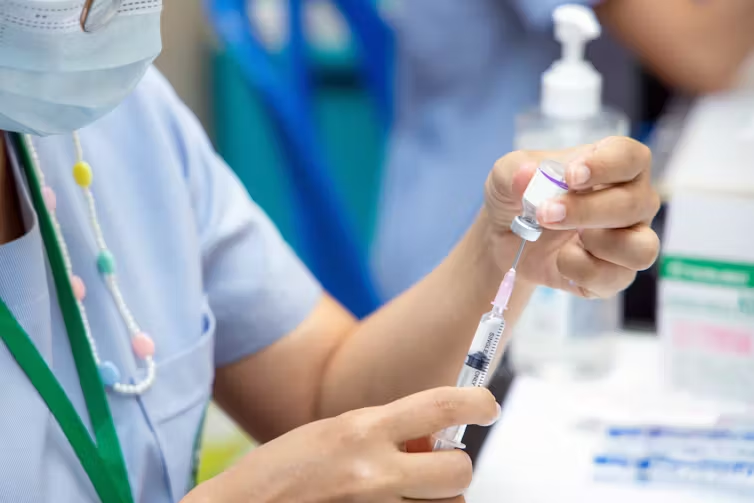Medical science is moving at lightning speed. What once seemed like science fiction is now becoming part of daily medical practice, thanks to groundbreaking medical breakthroughs across genomics, biotechnology, AI, and regenerative medicine. In 2025, the healthcare landscape is being reshaped, promising longer, healthier lives for millions around the world.
This in-depth guide explores the most revolutionary medical breakthroughs transforming diagnosis, treatment, and disease prevention today.
Revolutionary Advances in Genetic Medicine
Gene therapy has evolved from an experimental concept to a real-world solution for many life-threatening conditions.
Highlights:
- CRISPR-Cas9 technology has entered mainstream treatment, offering potential cures for inherited disorders like sickle cell anemia, cystic fibrosis, and muscular dystrophy.
- Base editing and prime editing, next-generation CRISPR tools, allow scientists to rewrite DNA with astonishing precision, reducing the risk of off-target effects.
- The first successful in vivo CRISPR treatments (editing genes directly inside the human body) are showing promising results for genetic blindness and heart diseases.
By editing faulty genes, we are moving closer to curing diseases at their root causes rather than just managing symptoms.
mRNA Technology: Beyond Vaccines

mRNA vaccines were a lifeline during the COVID-19 pandemic. Now, mRNA technology is branching into broader applications, offering personalized solutions to complex diseases.
Breakthrough Applications:
- Cancer vaccines are under development that use mRNA to train the body’s immune system to recognize and destroy cancer cells specific to each patient.
- mRNA therapies for autoimmune diseases like multiple sclerosis and rare genetic disorders are showing early success in clinical trials.
- Research into universal flu vaccines using mRNA platforms could eliminate the need for yearly flu shots.
mRNA is proving to be one of the most versatile tools in the modern medical arsenal.
Artificial Intelligence and Machine Learning in Medicine
AI is more than a buzzword — it’s saving lives and revolutionizing the healthcare system.
Key Areas of Impact:
- AI-driven diagnostic tools can now detect cancers, strokes, and heart diseases in minutes, often more accurately than human doctors.
- Predictive analytics help anticipate patient complications before they occur, improving hospital outcomes and reducing readmissions.
- AI-assisted surgeries, including robotic microsurgeries, enable procedures once considered impossible due to precision limitations.
In 2025, AI is not replacing doctors — it’s amplifying human intelligence, offering faster, safer, and more precise medical care.
Breakthroughs in Cancer Treatments
Cancer research has achieved monumental progress with therapies that are less toxic and more effective.
Innovations:
- CAR-T cell therapy, which genetically engineers a patient’s immune cells to attack cancer, has expanded from blood cancers to some solid tumors.
- Neoantigen vaccines are personalized vaccines made from the unique mutations found in a patient’s tumor, teaching the immune system to target the cancer directly.
- Targeted therapies using antibody-drug conjugates (ADCs) deliver chemotherapy directly to cancer cells, sparing healthy tissue.
Cancer is gradually transforming from a death sentence into a manageable, often curable, chronic condition.
3D Bioprinting and Organ Regeneration: A New Frontier
Organ shortages have long plagued the medical world — but 3D bioprinting offers a solution.
Stunning Advances:
- Functional liver tissues have been successfully printed, providing new hope for patients with liver disease.
- Research on bioprinted kidneys and heart patches could soon lead to human clinical trials.
- Custom-made bone and cartilage replacements using patients’ own cells are now used in reconstructive surgeries.
Imagine a future where no one dies waiting for an organ transplant — 3D bioprinting is making that future a reality.
Microbiome Research: Unlocking the Body’s Hidden Ecosystem

The human body hosts trillions of microbes that profoundly impact our health.
Emerging Insights:
- Gut microbiome therapies are being developed to treat conditions like obesity, depression, IBS, and autoimmune disorders.
- Fecal microbiota transplants (FMT) have become a frontline treatment for Clostridium difficile infections and are being explored for other conditions.
- Customized probiotic therapies tailored to individual microbiomes are in clinical development.
Harnessing the microbiome represents a new frontier in personalized medicine.
Global Health Breakthroughs: Equity Through Technology
Healthcare access disparities are narrowing thanks to innovation.
Key Innovations:
- Telemedicine platforms provide rural and underserved areas with access to specialists via smartphones.
- Portable diagnostic labs the size of a suitcase allow rapid testing for infections like malaria, tuberculosis, and COVID-19.
- Wearable health monitors offer continuous tracking of vital signs, alerting patients and doctors to early warning signs.
Technology is democratizing healthcare, making quality care accessible around the globe.
Preventative Medicine and Predictive Healthcare
In 2025, healthcare is not just reactive — it’s predictive and preventative.
How It Works:
- AI-powered predictive models assess risk factors and help individuals make lifestyle changes before disease strikes.
- Genetic screening identifies high-risk individuals for conditions like breast cancer and Alzheimer’s long before symptoms appear.
- Digital twin technology (virtual simulations of patients) allows doctors to predict how a person will respond to specific treatments.
Preventing disease before it starts is the ultimate goal of modern medicine.
Frequently Asked Questions
Q1: What are the most promising medical breakthroughs of 2025?
The most promising include CRISPR gene editing, mRNA-based cancer vaccines, AI-powered diagnostics, and 3D bioprinted organs.
Q2: How soon will personalized medicine become mainstream?
Personalized medicine is already being implemented in cancer treatment and pharmacogenomics. It is expected to become standard practice within the next 5 years.
Q3: Are 3D-printed organs available for human transplant yet?
While full organ transplants aren’t yet common, bioprinted tissues are being used for research and certain regenerative treatments. Human trials are expected within the decade.
Q4: How is artificial intelligence improving surgery?
AI assists with robotic precision, pre-surgical planning, real-time decision support, and even performing microsurgeries beyond human capability.
Q5: What diseases can be prevented or treated by targeting the microbiome?
Conditions like irritable bowel syndrome (IBS), depression, obesity, autoimmune diseases, and even allergies can be influenced by microbiome-targeted therapies.
Conclusion: Medical Breakthroughs Are Shaping a New Era
We are standing at the threshold of a medical revolution. Medical breakthroughs in 2025 are not just extending life — they are enhancing its quality. From editing genes and printing organs to using AI for precision treatment, humanity is reimagining the very nature of healthcare. The future of medicine is personal, predictive, preventative, and accessible. Staying informed about these advancements empowers us to embrace a healthier tomorrow with optimism and preparedness.





Leave a Reply